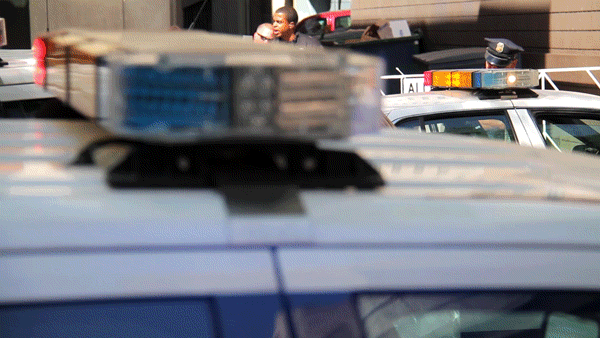A decision letter from Denver District Attorney Mitch Morrissey describes a dramatic encounter in the cramped second story of a house in the Baker neighborhood that ended in the death of Terry Lee Salazar.
Salazar, 49, was shot and killed by Denver police office Antony Gutierrez-McKain early on the morning of Aug. 27. Salazar was living in 8 Fox St., at the corner of Fox Street and Ellsworth Avenue, and he was wanted on several outstanding warrants.
According to police and the DA's office, Salazar was acting angry and threatening to other people in the house that night and then punched and stabbed a man who confronted him about his behavior.
Around 2:40 a.m., a woman who lived at the house quietly called police to tell them that Salazar had outstanding warrants, that she was going to kick him out of the house and that police should be waiting for him. She asked to remain anonymous because she feared Salazar would kill her if he realized she had called the police.
Gutierriez-McKain and Officer Sean Kelly were waiting when Salazar left the house, but he saw them and ran back inside, then upstairs to a small second-story bedroom. The officers followed, Gutierrez-McKain with his gun drawn and Kelly with his Taser in hand, according to the DA's office.
The officers said they heard a woman scream, "Terry, don't do this!" They pushed open the door to the room, and thus began what investigators describe as a "prolonged confrontation." According to the officers and to two other adult witnesses who were in the room with Salazar, he swung his knife at the officers, at times advanced on them and threw things at them, all while yelling that he would not go back to prison. He also yelled about getting a gun.
Kelly fired his Taser at Salazar, which briefly stopped him, but he pulled out the prongs and kept coming, investigators said.
Gutierrez-McKain did not fire at Salazar at first, even though he refused orders to put the knife down, because there was a man behind him in the room. At some point, that man actually escaped out the window and onto the roof.
Salazar was able to push the door closed several times. Because he was yelling about getting a gun, the officers retreated down a hallway and partially down a staircase in order to have more cover, according to the letter of decision.
The officers took position on the landing, and Salazar advanced on them again, swinging the knife, according to the letter.
These are Gutierrez-McKain's words to investigators:
"I’m backing up. I’m thinking: this guy is going to slash me, or he’s going to stab me. I can’t go any further back, so this is it, you know. Either he stops and puts the knife down, or I have to shoot him."
The officer estimated that Salazar was two arms' lengths away when he fired. Gutierrez-McKain shot Salazar five times, killing him. An autopsy found that Salazar had methamphetamine in his system.
In finding the shooting justified, Morrissey cited two Colorado statutes, one allowing for self-defense when a person believes themselves to be "in imminent danger of being killed or of receiving great bodily injury" and one allowing officers to use deadly force when making an arrest when the officer "reasonably believes it is necessary to defend himself or a third person from what he reasonably believes to be the use or imminent use of deadly physical force."
"In this case, the evidence shows that Officer Gutierrez-McKain was clearly acting in self-defense and both of these statutory justifications would shield him from criminal liability," Morrissey wrote. "No witness or evidence contradicts or disputes this. Therefore, criminal charges are not legally or ethically appropriate and will not be filed."













